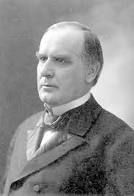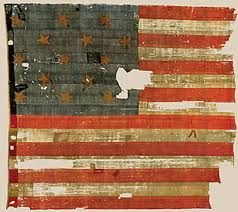“Punting the Pundits” is an Open Thread. It is a selection of editorials and opinions from around the news medium and the internet blogs. The intent is to provide a forum for your reactions and opinions, not just to the opinions presented, but to what ever you find important.
Thanks to ek hornbeck, click on the link and you can access all the past “Punting the Pundits”.
Follow us on Twitter @StarsHollowGzt
Paul Krugman: Labour’s Dead Center
Jeremy Corbyn, a long-time leftist dissident, has won a stunning victory in the contest for leadership of Britain’s Labour Party. Political pundits say that this means doom for Labour’s electoral prospects; they could be right, although I’m not the only person wondering why commentators who completely failed to predict the Corbyn phenomenon have so much confidence in their analyses of what it means.
But I won’t try to get into that game. What I want to do instead is talk about one crucial piece of background to the Corbyn surge – the implosion of Labour’s moderates. On economic policy, in particular, the striking thing about the leadership contest was that every candidate other than Mr. Corbyn essentially supported the Conservative government’s austerity policies.
Worse, they all implicitly accepted the bogus justification for those policies, in effect pleading guilty to policy crimes that Labour did not, in fact, commit. If you want a U.S. analogy, it’s as if all the leading candidates for the Democratic nomination in 2004 had gone around declaring, “We were weak on national security, and 9/11 was our fault.” Would we have been surprised if Democratic primary voters had turned to a candidate who rejected that canard, whatever other views he or she held?
Dean Baker: To fix the debt, stop Fed rate hikes
Deficit hawks should join the fight against interest rate hikes
The drumbeat for a rate hike by the Federal Reserve Board seems to be unstoppable. When the data seem to undermine one argument for a hike, the rate hike advocates simply change course.
The original rationale for higher interest rates was the need to stop inflation. We have had people harping on the risk of hyper-inflation since 2009. Inflation has remained stubbornly low these last six years, consistently remaining under the Fed’s 2.0 percent target. If anything, the recent trend has been downward as a result of the collapse of the price of oil and other commodities.
If the threat of inflation isn’t adequate for selling an interest-rate hike, the next move was the need to have higher rates to attack bubbles. The big problem with this story is that it is not clear that we have any bubbles, nor is it obvious that hiking interest rates is the best way to address them if we did.
Democratic presidential hopeful Senator Bernie Sanders spoke Saturday to a half-empty gymnasium at Benedict College in South Carolina. The school is historically black, but the crowd appeared to be largely white.
This underscores the severe challenge facing the Sanders campaign: African-American voters have yet to fully connect to the man and the message. [..]
South Carolina will be the first test. According to The New York Times, 55 percent of South Carolina Democratic primary voters were black in 2008. Yet current polls show Clinton with a massive lead over Sanders in the state. And those polls show Vice President Joe Biden leading Sanders, even though Biden has yet to announce whether he’ll run. That’s why it’s important not only for Sanders to spend more time in the state, but also to pick a venue like Benedict College.
Robert Kuttner: The Larger Meaning of Jeremy Corbyn
The victory of Jeremy Corbyn, an old-style unreconstructed lefty, to lead the supposedly modernized British Labour Party, is emblematic of trends afflicting all of Europe. Corbyn represents the same upsurge among the young and the dispossessed as Bernie Sanders does in the United States — a feeling] that the more progressive of the two major parties is just not delivering, and a demand for new leadership that rejects failed centrism.
Unfortunately for the Brits, Sanders is rather more presentable in his views than Corbyn. In the mainstream press, Corbyn has been ridiculed for saying admiring things about Hugo Chavez, wanting to pull Britain out of NATO, calling for broad scale nationalizations of industry and expressing pro-Palestinian views that, at times, seem to border on anti-Semitism. More on these questions in a moment.
But the election of Corbyn — love him or hate him — reflects something profound that is occurring all across Europe.
Scott Lemieux: Partisanship isn’t the enemy of reform – it’s a necessary condition of it
Harvard Law professor Lawrence Lessig has raised a million dollars and declared that he’s running for the Democratic nomination for president – and he claims to have invented a new strategy that would compel Congress to pass his agenda.
Lessig’s campaign is based on a simple promise – that his entire goal as president would be passing the “Citizens Equality Act,” a series of (attractive) electoral and campaign finance reforms. He has vowed to do nothing but focus on the act and then resign once it’s passed. Even if North Korean troops attempt to march into Seoul, a hurricane hits Miami and a US Supreme Court vacancy emerges, Lessig will retain a laser focus on his pet procedural reforms. By declaring the election a “referendum,” he asserts, even the Republicans who will almost certainly control the House of Representatives in 2016 will have no choice but to pass his proposed legislation.
He’s wrong. Both strategically and substantively, Lessig’s run reflects a lot of the common fallacies of people who think they’re too smart for politics.
Robert Reich: Ranking Colleges
After heavy lobbying from some of the nation’s most elite institutions of higher education, the President has just abandoned his effort to rank the nation’s 7,000 colleges and universities.
So, with college application season almost upon us, where should aspiring college students and their parents look for advice?
In my view, not U.S. News and World Report‘s annual college guide (out last week).
It’s analogous to a restaurant guide that gives top ratings to the most expensive establishments that are backed and frequented by the wealthiest gourmands — and much lower rankings to restaurants with the best food at lower prices that attract the widest range of diners. [..]
In an era when income and wealth are more concentrated at the top than in living memory — much of it in the hands of Wall Street bankers, corporate executives, and their retainers — U.S. News has become a major enabler of American inequality.
We need another guide for ranking colleges — one that doesn’t look at the fatness of alumni wallets or the amount spent on each student, but does take account of economic diversity and dedication to public service.
Fortunately, there is one. It’s a relatively new one, provided by the Washington Monthly.
My advice: Use it.





 Welcome to the Stars Hollow Gazette‘s
Welcome to the Stars Hollow Gazette‘s 
Recent Comments